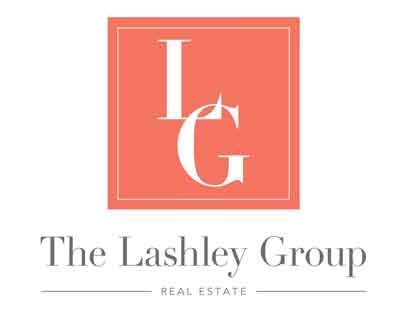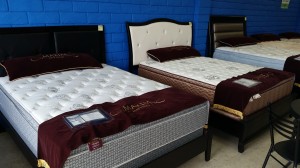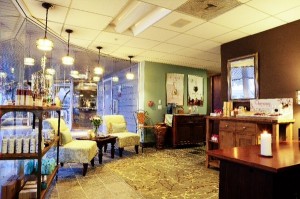Great Article from Peter Siegel at Biz Ben
http://www.bizben.com/blog/posts/absentee-run-myth-or-reality-when-buying-a-small-business-782.php

One familiar saying among business brokers is that any buyer who asks for an opportunity where they just collect the money and don’t do any work, should be advised to join the Mafia.
The point of the joke is to suggest there is no legitimate business that doesn’t require some investment of time and attention to go along with the cash used to buy it. A more realistic answer, however, would be that most business opportunities on the market in California are opportunities for an individual to “buy a job.” Whether the company is involved in the fast food or dining industry, is in retail, provides a service or is engaged in some other small business function, the owner will have to perform some of the work that produces the revenue. That’s the economic reality for nearly all small businesses.
Here’s why: For most small businesses to succeed, they must offer their products or services at a competitive price. That means the auto repair shop that has not priced itself out of the market, is collecting enough income through its hourly rate and parts mark-up to pay its employees a fair wage, handle the expense of purchasing parts, supplies and materials, and support overhead costs such as rent, insurance and utilities. If the owner is not on the premises during working hours, he or she will have to hire someone in the shop or the office to do the work performed by the owners in other, similar businesses. That owner will have to pay a manager’s salary to a person who has the business experience, knowledge of the industry, ability to handle customers and other attributes necessary to keep the shop running smoothly. That salary is the money the owner would have received as a working member of the team.
That’s the basic economic model applicable to most small businesses. If the owner expects to cover all expenses and then take three, or five, or ten thousand dollars a month out of the business, to reward himself with an “absentee” fee, it almost always will require substantial price increases charged to customers. The figures might then work out on paper, but the owner is likely to soon find that the customers have decided to obtain their repair services at a company with more affordable, market-rate pricing.
Similarly, the absentee owner of a fast food operation will need to charge eight or nine dollars for a meal that competitors sell for six. And unless there is something really special in the hamburger, the business isn’t sustainable with that pricing. This model is also applicable to the dry cleaning business and most other service companies, as well as food purveyors and the majority of wholesale and retail product sales firms.
But, Aren’t There Exceptions?
Most every business buyer is aware of someone who is, or seems to be taking money out of his or her company without having to do any work. Examples of these absentee businesses include:
– A large car wash in Southern California generates about four to five thousand a month for each of its three absentee owners who invested about $160,000 each to purchase it. Each of them spends his time pursuing individual interests, but they meet once a week to review income and expense reports and ask their well-paid manager about any unusual expenses or fluctuations in the number of part time employees who run the half-block-long wash line and handle drying, waxing and other needed duties. Each owner considers his return on investment to be about 30% per year and after non-cash deductions the taxable income is far less than that.
– Coin operated businesses, such as laundromats, often can be operated with little involvement by the owners. Many owners even hire a part-time employee to keep the facility clean and remove cash from the locked boxes in machines or from dispensers that collect money from customers and provide “value” cards used to activate equipment.
– Fred is an owner of three taco stands in Central California. Stewart owns several dry cleaning agencies in Southern California. Both make a good income from their businesses, when adding together the discretionary earnings from each location. And they’ll tell you they are absentee owners because they don’t spend time behind the counter or interact with customers at any of their locations.
– Sandy spends almost no time at the pie shop she purchased. Instead, she works with employees at her bakery where they produce the pies and cakes provided to her shop and sold to wholesale customers. Without working in the shop, she still collects an income from it.
– The owner of a building in a retail district located in an Oakland suburb purchased a women’s fashion boutique from one of her tenants. She’s not at the business very often, paying employees to operate the shop. Yet her income is nearly $40,000 a year.
– The absentee owner of a print shop in Southern California does not take any money out of his business, but expects the payoff to occur in a few years, when he sells it for much more than he paid.
By examining the details of these absentee businesses, the astute observer would discover the fellows with the car wash enjoy a better return but face greater risks than had they invested in a completely passive vehicle, such as in the stock market. And they’ll soon need to come up with about $75,000 each to overhaul and update the facility if they want to maintain their level of business. The coin laundry owner has a sweet deal going if he doesn’t want to work, but had he invested a little more into a service business that would have required his full time involvement, he probably would have enjoyed a much larger income than that provided by the automated laundry.
Some of the many California entrepreneurs who own two or more businesses in the same field and the same general area are proud to say they are making an income from each business without working behind a counter or providing service for customers. Yet their involvement supervising several businesses is really a full time job. They aren’t absentee owners at all.
Sandy’s income as absentee owner of the pie shop actually comes not from the sales generated by that business; it results from her work creating products at the bakery. The income is realized in the sales at her shop. And while the absentee owner of the dress store is collecting money from operation of the business, it is because the business is not charged with any rent or other overhead expenses. Her gain as the business owner is balanced by the loss of income from her property.
In the final example, the print shop’s absentee owner may be able to sell for a higher price than the amount he paid. But if the company’s increased value is largely a result of business growth at the pace of inflation, the owner has not really gained financially. He didn’t work in the business, and he did not enjoy any real income or a real increase, after adjustment for inflation, in his balance sheet.
These examples illustrate some of the decisions that business owners make that involve a trade off in working hours, risk incurred and income received. Yes there are real exceptions of business owners in low risk businesses able to collect revenues while assuming a truly absentee role. But they are rare and usually result from extraordinary – often temporary – circumstances.
For most buyers, however, the smart choice is to determine what he or she is interested in achieving, keeping in mind the tradeoffs required. And try not to spend too much time and energy chasing the dream of a profitable, low risk business that does not need the owner to do any work.






